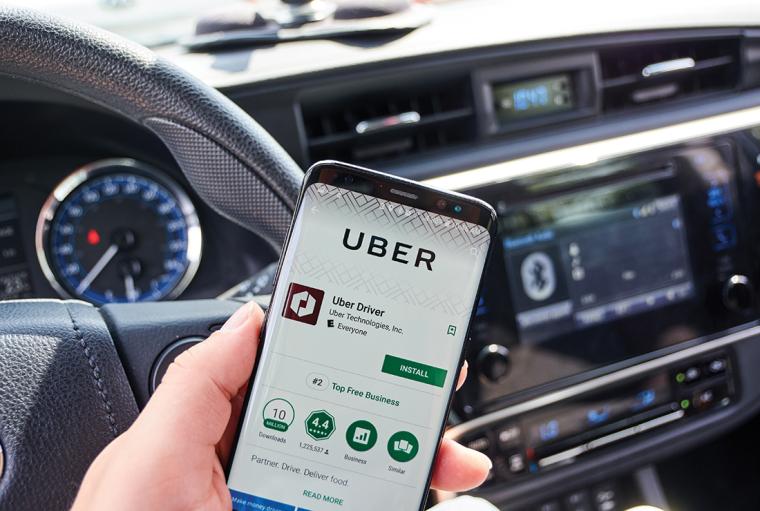
Dublin, Ireland hosted a college football game between Georgia Tech and Florida State in August with over 30,000 tickets purchased by Americans. This fall, enthusiasts can travel to India for the International Kite Festival or to NFL games in London, Munich or San Paulo. In early 2025, sport fans can travel to NBA an game in Paris or an MLB game in Tokyo while fun-seekers can book a stay in Bolivia or Rio for Carnival.
In short, there are a growing number of opportunities within sports and entertainment that entice hard core fans, savvy adventure enthusiasts or curious vacationers to travel to events within the United States or internationally.
Event organizers have a duty to make travel relatively affordable and easy for spectators, sponsors and participants. Hosting ball games, tour events, races, concerts, festivals, conventions, traveling museums and exhibitions in vibrant cities expands the market reach for organizers and assists in economic development.
To derive the full benefits, event and tour operators must consider transportation options and mitigate potential challenges to meet the diverse needs for seasoned travelers as well as those embarking on their first foray into destination travel. Travel options assist attendees to manage their budgets and achieve the goal of a hassle-free experience.
Whether choosing an Airbnb over a hotel or reaping travel rewards for booking with a choice hotel or selecting events outside a peak travel season to save money, travelers are accustomed to exploring a plethora of options to create the best personal experience. Event organizers should lean in to helping expedite travel-related decisions by providing detailed information and leveraging their power to negotiate deals that pass on savings. Following are travel-related suggestions for event property organizers and operators.
1. Create a Comprehensive Event Guide
The comprehensive event guide can serve as a traveler’s best friend. While the event guide includes itineraries, schedules, accommodation options and discount codes, venue information, cultural and language tips (if the event is held outside the U.S.), safety and security guidelines and everything pertaining to the event, it should also include transportation details. Travelers will refer to the guide more often as the event date approaches. PDF versions should be accessible on an event’s website or app. Specifically, the event guide should include some or all of the following:
• Detailed directions
• Public transportation information (bus routes, subway lines, tram schedules, etc.)
• Shuttle service schedules
• Parking information
• Alternative airport options
• Airport transfer options
• Ride sharing information
• Emergency contact information
• Venue maps
• Local dining and entertainment options
• Local traffic and road conditions
• Travel insurance information
2. Develop or Utilize a Travel App

Technological advancements such as augmented reality have made travel apps easier to develop or access. Travel management solution tools such as TravelPerk, Navigo and Navan are easily accessible on digital devices and offer a wide range of services with real time navigation. Users can easily project travel costs, search walking directions, select commute options and receive notifications on traffic conditions.
Some events create their own app such as the 2024 Paris Olympics and Paralympics. Not only did the organizing committee for the Games have an app specific to events, but they also partnered with Ile de France and Navigo for an app concentrating on travel to competition venues. Within the app, spectators could purchase a Paris 2024 Pass and could easily review multiple travel options for competition venues and landmarks.
When opening the Ile de France app, users could easily add a destination and find multiple route options for different modes of transportation as well as times for walking within and between stations. The Paris 2024 pass could be purchased on the app and loaded on a smart phone for single trips, unlimited daily travel at €16 per day or unlimited seven-day travel for €70. The pass could be stored and used in an e-wallet making transportation relatively easy as well as affordable. The greatest feature of the app, however, was the real time destination routing system.
3. Encourage Early Booking
Early bookings are generally a preferred travel option allowing individuals to take advantage of discounts and budget with greater accuracy. However, with accommodation and travel costs fluctuating according to supply and demand, a last-minute deal may be less expensive than an early booking. The risk involved in waiting to see if prices drop often is negated by the increased stress. The early booking option is the most effective way to manage costs.
4. Suggest Alternative Airports
Selecting alternative airports can sometimes provide cost savings to attendees. Additionally, alternative airports are less crowded. The concern for the distance of an alternative airport can be mitigated by providing a free or discounted shuttle service to the event venue and accommodations. The cost savings in selecting an alternative airport may be great enough to offset the extra time to travel between destinations.
5. Negotiate Group Discounts
Organizations and operators that negotiate group pricing for airlines, buses and accommodations are able to offer more affordable options for travelers. Negotiating group discounts can potentially strengthen partnerships with local providers and lead to sponsorship opportunities at future events. The ability to pass along budget savings demonstrates a concern for enhancing the overall satisfaction of attendees.
6. Leverage Public Transit Integration
Once an attendee arrives at a destination, public transportation can be the most cost-efficient way to travel around a city. Rather than renting a car or using a personal vehicle, rideshare services such as Uber, Lyft and Bolt are often more affordable than public taxi services and can be accessed with ease on a smart phone. Many hotels offer shuttle services to places within the city. Bus, metro, train, ferry and tram or cable car are additional public transit options.
Leveraging public transportation generally provides cost savings to attendees as well as an environmentally friendly option that reduces an event’s overall carbon footprint. Traffic congestion is often minimized around a venue when public options are used.
7. Provide On-Demand Transportation

On-demand transportation options include taxis, shuttles, private car services and others. These options provide flexible, immediate and personalized solutions that enhance the mobility of attendees within the event area or between key locations, such as hotels, parking lots and the venue. Dedicated shuttle services are greatly appreciated by event attendees, especially those without a personal vehicle or who are unfamiliar with a destination. This service should be publicized in advance with information on schedules, frequency and the locations for pick-ups and drop-offs. The shuttle service, whether connecting airports, hotels, venues or hospitality sites, generally reduces the number of vehicles on the road and provides cost savings to attendees.
8. Anticipate Issues
Event organizers are wise to anticipate issues and provide solutions for traffic congestion, limited parking availability, public transit overload, accessibility challenges and communication breakdowns that may cause delays. By conducting a risk management inventory for potential transport issues, problems can potentially be pinpointed and alleviated. Convenient, secure and orderly ingress and egress processes as well as trouble-free transportation are a sure-fire means to add to the satisfaction level of attendees.
In general, event operators play a significant role in mastering the complexities of event travel, ensuring that attendees have a seamless, stress-free experience. By intentionally planning and coordinating transportation options, addressing potential challenges and prioritizing clear communication, they create an environment where attendees can focus on the event itself rather than the logistics of arriving and departing. This level of attention to detail not only enhances attendee satisfaction but also elevates the overall success of the event. SDM

